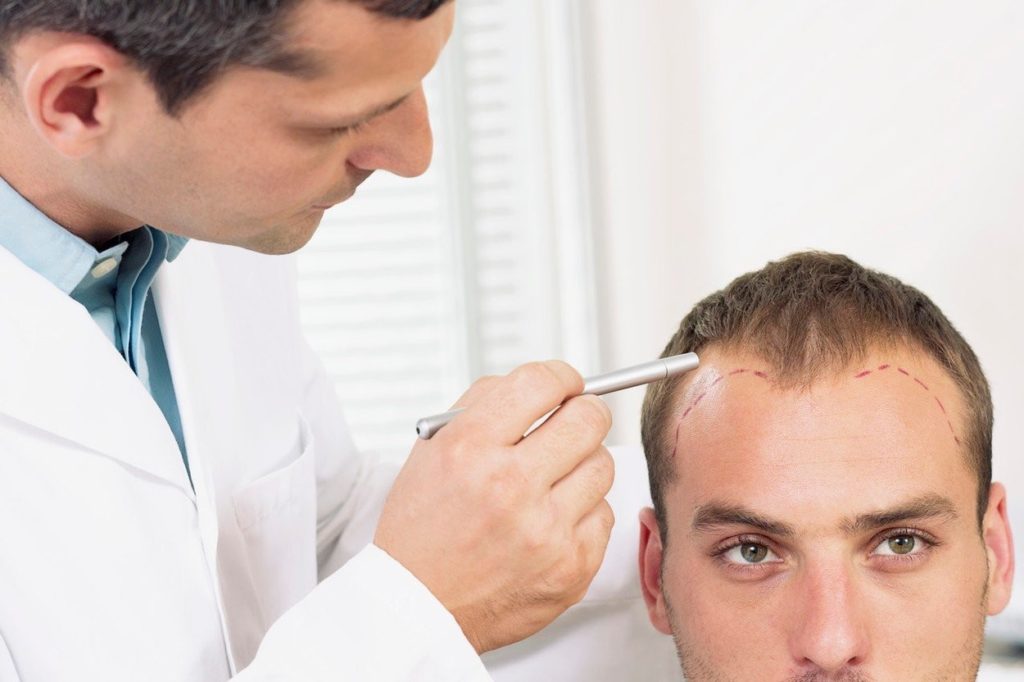Hair Loss Treatment
Hair Loss
Hair loss is a common concern that affects millions of people worldwide, and it can be caused by a variety of factors. Understanding these causes is the first step towards finding an effective solution.
Genetics is the leading cause of hair loss, particularly in the form of androgenetic alopecia, commonly known as male or female pattern baldness. This hereditary condition causes hair follicles to shrink, leading to thinning hair and eventually, baldness.
Hormonal changes also play a significant role in hair loss. Conditions like thyroid disorders, pregnancy, menopause, and polycystic ovary syndrome (PCOS) can disrupt hormone levels, leading to temporary or permanent hair loss.
Stress is another major factor. Physical or emotional stress can trigger a type of hair loss called telogen effluvium, where hair prematurely enters the resting phase, leading to shedding.
Medical conditions and treatments, such as autoimmune diseases like alopecia areata or chemotherapy for cancer, can also result in significant hair loss.
Additionally, poor diet, lacking essential nutrients like iron, zinc, and vitamins, can weaken hair follicles, causing hair to fall out.
Understanding the cause of hair loss is essential for choosing the right treatment. Whether it’s addressing hormonal imbalances, reducing stress, or exploring advanced hair restoration techniques, there are solutions available to help combat hair loss.
Treating Hair loss for men and women
At UK Hair Transplants (UKHT), we specialize in providing tailored solutions to address various causes of hair loss. Our clinic offers advanced treatments, including the Follicular Unit Extraction (FUE) technique, which involves the precise extraction and transplantation of individual hair follicles for natural-looking results. We also provide Platelet-Rich Plasma (PRP) therapy, which stimulates hair growth by using the patient’s own blood plasma, rich in growth factors.
Our experienced team at UKHT conducts thorough consultations to assess your unique situation and develop a personalized treatment plan. With our expertise and state-of-the-art techniques, you can regain your confidence and achieve the fuller, healthier hair you desire.
How does the FUE Beard Transplant procedure works?
The Follicular Unit Extraction (FUE) procedure, as used for hair transplants, is also utilised in Beard, Moustache, Goatee and Sideburn Hair Transplants. This method is a minimally invasive procedure used to restore hair density on different areas of the face. The procedure can take between three and nine hours – depending on the area treated and amount of hair required. For example, a goatee may require up to 1,500 hairs, while a full beard may need up to 4,000 hairs.
During the procedure the Surgeon locates the ‘stable zone area’ at the side or back of the head. This is used as the donor area for the beard, moustache or sideburns. Finer hair is typically needed for a Beard Transplant where the donor area is located at the sides of the head. If the patient is balding or is completely bald it is also possible to use body hair such as the chest area for the donor area.
An FUE Beard Transplant is a walk-in walk-out procedure and only local anaesthetic is used to ensure minimal downtime. Once the donor area is located each hair follicle is taken out one at a time using ‘punches’ to cut in and around the follicle. The size of the tools will depend on the size of the follicles required – the finer the hair the smaller the ‘punch’. This part of the process is completed very discretely and will be unnoticeable.
Once this is completed local anaesthetic is administered to the areas of the face for the hair transplant. Careful and skilful attention is used to ensure the extracted hairs are then implanted, one follicle at a time, at the right angle to give highest density and most natural looking results.







